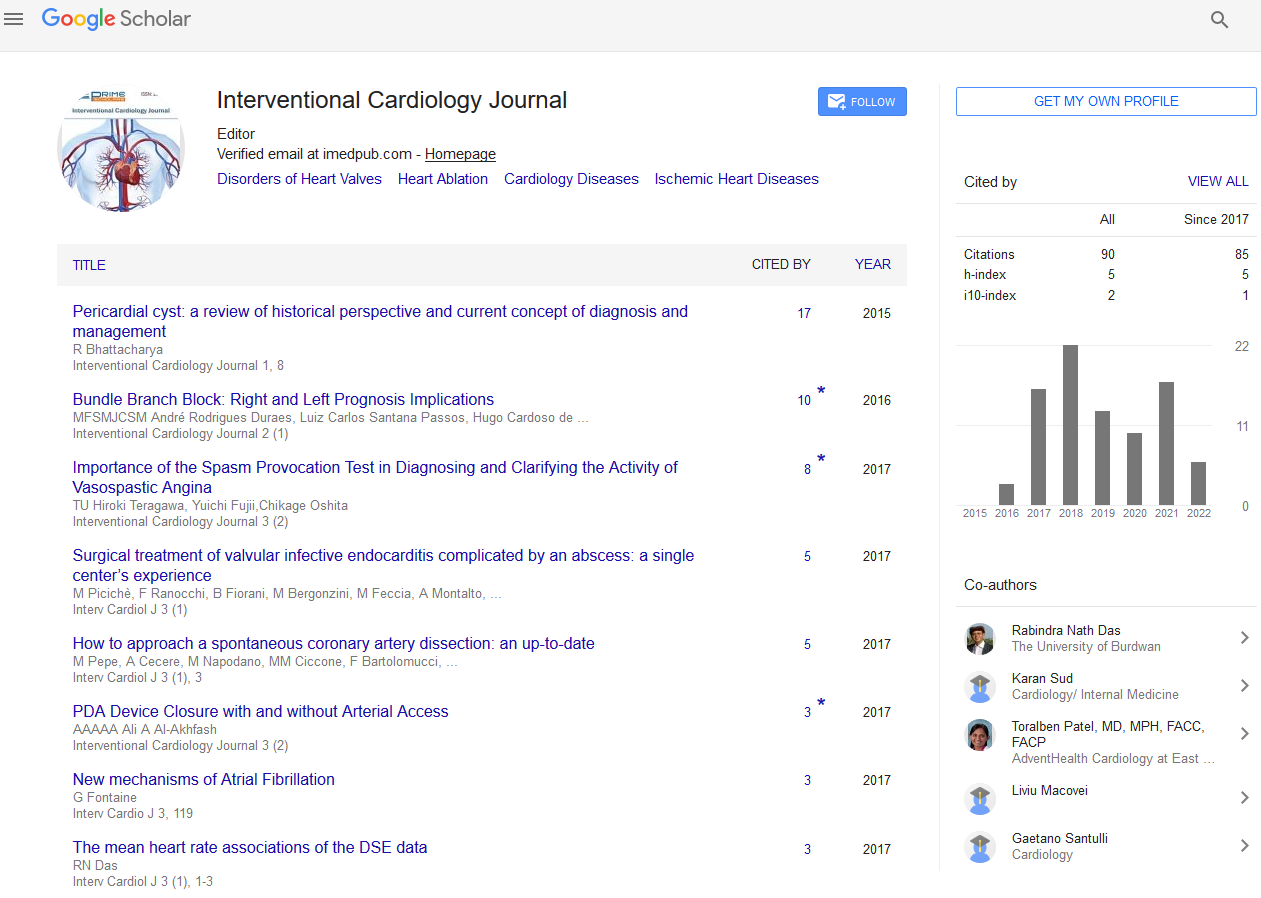Opinion - (2024) Volume 10, Issue 2
The Impact of Lifestyle Modifications on Long-Term Outcomes on Medical Interventions
Min Zeng*
Department of Public Health, Wuhan University, China
*Correspondence:
Min Zeng,
Department of Public Health, Wuhan University,
China,
Email:
Received: 31-Jan-2024, Manuscript No. IPIC-23-19073;
Editor assigned: 02-Feb-2024, Pre QC No. IPIC-23-19073 (PQ);
Reviewed: 16-Feb-2024, QC No. IPIC-23-19073;
Revised: 21-Feb-2024, Manuscript No. IPIC-23-19073 (R);
Published:
28-Feb-2024, DOI: 10.21767/2471-8157.10.02.19
Introduction
In the realm of healthcare, medical interventions often play
a crucial role in managing various health conditions. While
interventions such as surgeries, medications, and therapies are
essential, their long-term success is significantly influenced by
lifestyle factors. Lifestyle modifications encompass changes in
diet, physical activity, stress management, and other behaviors
that can profoundly affect health outcomes. This article explores
the intricate relationship between lifestyle modifications and
the sustained success of medical interventions, highlighting
the importance of a holistic approach to healthcare. Lifestyle
modifications refer to intentional changes in an individual's
daily habits and behaviors, with the goal of promoting overall
health and preventing or managing specific medical conditions.
These modifications can include adjustments in diet, exercise
routines, sleep patterns, stress management techniques, and
substance use. The impact of nutrition on health is undeniable.
Dietary modifications may involve changes in calorie intake,
macronutrient distribution, and the consumption of specific
foods to address health conditions such as obesity, diabetes,
and cardiovascular diseases. Regular physical activity is
associated with numerous health benefits, including weight
management, improved cardiovascular health, and enhanced
mental well-being. Exercise routines tailored to an individual's
abilities and health conditions can contribute significantly to
long-term health outcomes.
Description
Medical interventions, ranging from surgeries to pharmacological
treatments, aim to address specific health issues. However,
their effectiveness can be significantly influenced by an
individual's lifestyle choices. The interplay between lifestyle and
medical interventions is multifaceted, and understanding this
dynamic is crucial for achieving sustained positive outcomes.
In the context of cardiovascular interventions such as Coronary
Artery Bypass Grafting (CABG) or Percutaneous Coronary
Intervention (PCI), lifestyle modifications are paramount.
Dietary changes, regular exercise, and management of risk
factors like hypertension and hyperlipidemia can prevent
the progression of cardiovascular diseases and enhance the
benefits of interventions. Bariatric surgery is a well-established
intervention for severe obesity. However, the long-term success
of weight loss surgery is contingent on lifestyle modifications,
including dietary adherence, regular physical activity, and
behavioral changes. Patients who adopt healthier lifestyles
post-bariatric surgery tend to experience sustained weight
loss and improved metabolic outcomes. Cancer treatments,
including chemotherapy and radiation therapy, are integral in
the fight against cancer. However, lifestyle modifications can
support these interventions by bolstering the immune system,
managing treatment-related side effects, and reducing the risk
of cancer recurrence. Adopting a healthy lifestyle post-cancer
treatment is crucial for overall well-being. Chronic diseases,
such as diabetes, hypertension, and Chronic Obstructive
Pulmonary Disease (COPD), often necessitate long-term
medical interventions.
Conclusion
The symbiotic relationship between lifestyle modifications and
medical interventions is a cornerstone of holistic healthcare.
While medical interventions address specific health issues, the
sustained success of these interventions relies heavily on the
adoption and maintenance of healthier lifestyles. Whether
managing chronic diseases, undergoing surgeries, or receiving
pharmacological treatments, individuals can significantly
enhance their outcomes by embracing dietary changes, regular
exercise, stress management, and other positive behaviors.
The role of healthcare providers in educating, counseling,
and supporting patients on their journey toward healthier
lifestyles is paramount. As technology continues to advance,
digital solutions and integrative healthcare models offer
exciting possibilities for promoting and sustaining lifestyle
modifications.
Citation: Zeng M (2024) The Impact of Lifestyle Modifications on Long-term Outcomes on Medical Interventions. Interv Cardiol J. 10:19.
Copyright: © 2024 Zeng M. This is an open-access article distributed under the terms of the Creative Commons Attribution License, which permits unrestricted use, distribution, and reproduction in any medium, provided the original author and source are credited.

